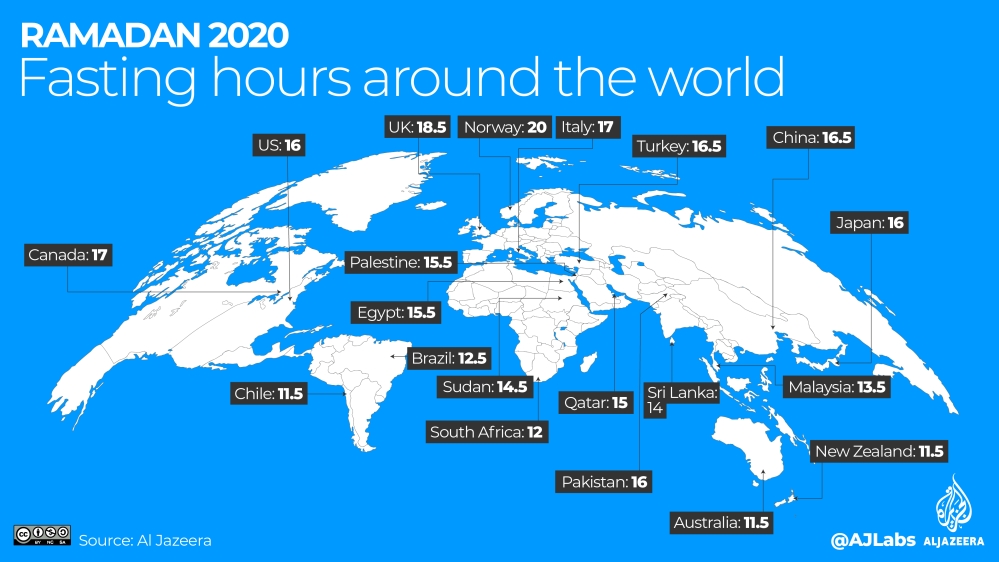
Many of us who are Christians felt a sense of existential, spiritual dislocation when we couldn't gather for worship through Palm Sunday, Holy Week and Easter Sunday this year. We all got it that not coming together was a loving expression of Christian faith, but it wasn't easy. It left me feeling hollow even though I felt our pastor (son Isaac) offered meaningful alternatives online.
Many Jews expressed similar bewilderment about not being able to come together for seder meals during Passover. The oldest members of families couldn't recall a year when Pesach was not observed communally, not even during WW2.
Now Muslims are about to enter Ramadan, a period of contemplative fasting which includes breaking the fast at the end of the day, with others. In many mosques hundreds gather at sunset for prayer and a meal. This is deeply meaningful for Muslims and a right of passage as well. A few years ago we were at the local mosque for a meal not long before Ramadan. We sat with a delightful teen from the community who was quietly proud of the fact that the previous year he had faithfully observed the full regimen of the fast for the first time since its not required for children.

A Ramadan meal
In a way we'e all entered into a period of intense fasting from the familiar, regardless of religious background, or no religion at all, because of the threat of COVID-1. Of course fasting, whether it is Lent or Ramadan is not meant as a punishment but in order to heighten our awareness through abstinence or redirected priorities.
There isn't much I like about this pandemic with the anxiety and fear in produces and the required distancing from family and our faith community. I do hope these weeks and months will cause us to reconsider what really matters for us. Could this be a call to simplicity which changes our daily routines and our care for the planet? Will we ask the hard questions about how we care for the most vulnerable in our societies? Can we climb off the runaway freight train of consumerism and economic growth? God only knows.
The cherry trees of High Park will blossom, even if humans aren't there. Today's Groundling blog
https://groundlingearthyheavenly.blogspot.com/2020/04/abundant-blossoms.html
2 comments:
To your last point, David, yes perhaps this will make us think about consumerism, the planet, relationships, and things that give you joy.
To toss in a little controversy in your blog, I am hoping that, as a vegetarian moving towards veganism, people will move away from meat and move to a more whole food plant based diet.
We don't know for sure if this virus started in the wet market in Wuhan, but it sounds like it did. This virus may have started from a bat, but next time it could be from an animal that is common at markets in the west, such as pigs(remember the swine flu?). The conditions in slaughterhouses are deplorable and possibly providing a starting point for viruses and disease. And a WFPB diet is undoubtedly better for the environment in numerous ways.
There....just wanted to stir the pot(excuse the pun). Lay it on me, meat-eaters!
I don't think it's controversial at all to suggest that reducing the consumption of meat is better for personal health, the health of the planet, not to mention the well-being of creatures raised and killed in unethical ways. Lots of us carnivores have changed our diets, even though we haven't become vegetarians or vegans. Thanks Roger.
Post a Comment